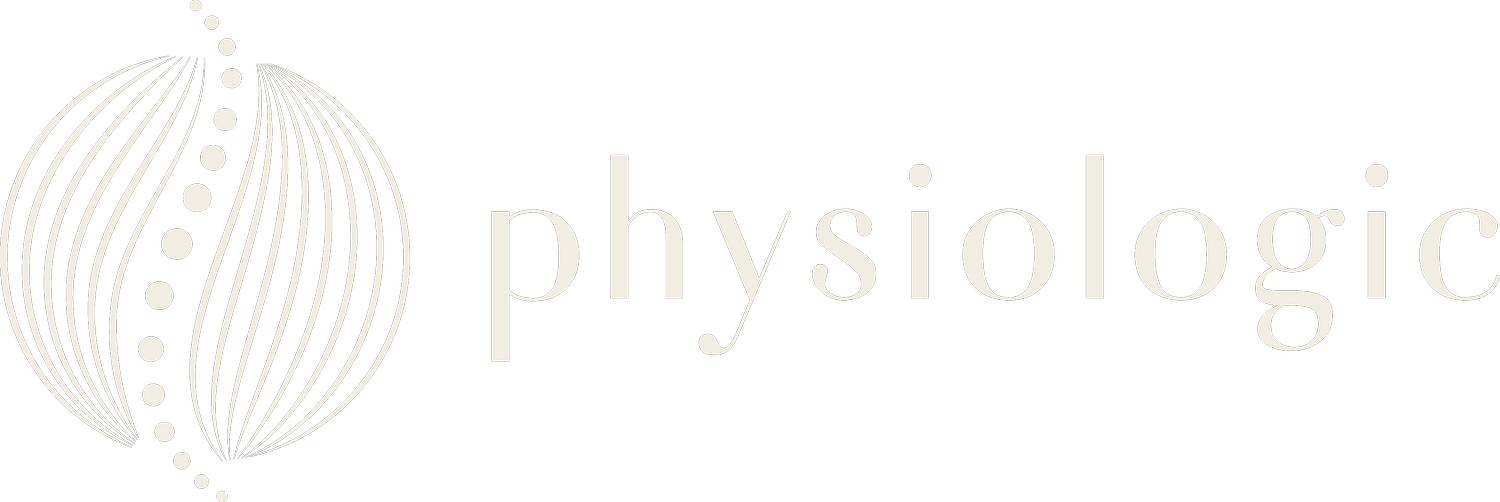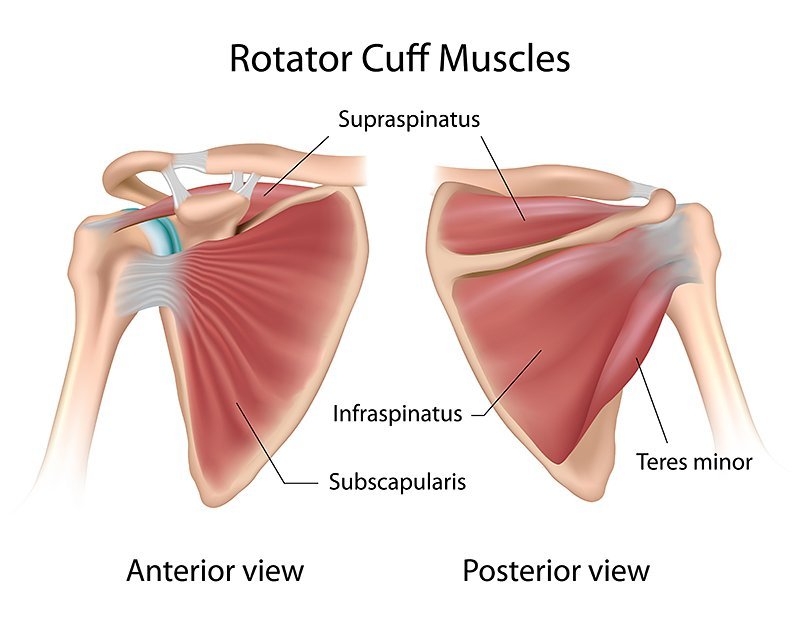Rotator Cuff Exercises
Written by Ryan Tan, BSc Physiotherapy, ASC Certified (S&C).
What is the Rotator Cuff?
One of the most common causes of shoulder pain is due to involvement of the rotator cuff muscles of your shoulder.
To explain very simply, the Rotator Cuff muscles are a group of 4 shoulder muscles working together to keep your shoulder ‘stable’. Improper control or weakness of the rotator cuff muscles can lead to
overuse injury of the tendon (Tendinopathy)
micro tears in the muscle itself
in severe cases a combination of multiple pathologies in the shoulder!
This can result in pain when lifting your arm in certain directions, doing certain sports, or even reduce how high you can lift your arm!
4 muscles that make up the ‘Rotator Cuff’ muscle group.
How did I get a Rotator Cuff Injury?
In our clinical experience, most Rotator Cuff injuries are non-traumatic, meaning that they tend to arise gradually with repeated use of the arm.
Common examples include a swimmer going through thousands of repetitions of freestyle strokes, or an electrician having to work overhead daily!
Common Causes of Rotator Cuff Injuries
Poor control and/or weakness of the rotator cuff muscles and its stabilising muscles
Sudden increase in physical activity that the body is unaccustomed to
Stiffness or dysfunction of distant body parts that cause overcompensation of the rotator cuff.
What’s the best way to strengthen & rehabilitate my rotator cuff injury?
We find that the best rehabilitation exercises to treat Rotator Cuff Injuries is to include exercises that directly work the rotator cuffs, but also to include exercises that work the stabilising muscles of the shoulder blade (scapula)!
Direct Rotator Cuff Exercises
Isometric Shoulder External Rotation - A simple and generally very well tolerated exercise as a basic rotator cuff exercise. Stand beside a wall with your elbow bent, gently push into the wall for 30 seconds, and repeat for 3-5 times. Isometric exercises have also been shown to have a powerful analgesic (pain relief) effect on the rotator cuff tendon.
Side Lying External Rotation - Lying on your side, with your elbow bent, injured side on top, hold onto a light weight. Rotate your forearm up toward the ceiling, keeping your upper arm by your body. Repeat 10-15 repetitions for 3 sets.
Shoulder Blade (Scapular) Stabilising Exercises
Torch Press - An excellent exercises that focusses on improving upward rotation of the scapula, which helps to take pressure off the rotator cuff muscles and tendons. Start off by standing in a split stance, and reach your arm diagonally forwards, emphasising the end part of the movement where your scapula really reaches forwards. Repeat 10-15 repetitions for 3 sets.
Shoulder Activation Sequence (‘Shoulder Big 3’) - A staple in my shoulder rehabilitation programs, this sequence of 3 exercises is something I recommend even in healthy individuals to activate their stabilisers prior to an upper body gym day, or sports! Lie face down on the floor, with your arms out by the side to form a ‘T’ shape, lift arm up off the floor, and back down 15 times. Then, move arm down by your pockets in an ‘A’ shape, lift up and down again 15 times. And finally, rotate the arm so the palms face up and repeat!
Long Term Shoulder Health
These exercises are an excellent place to start for most, as it directly addresses the rotator cuff with specific exercises, and also the stabilising muscles as the root cause of your injury. For active individuals requiring a more robust rehabilitation program to forge elite shoulder health, reach out to our Physiotherapist experienced with elite athletes here to create a bespoke program for your needs.
About the Author
Ryan Tan is our Clinical Director and Physiotherapist here at Physiologic Hong Kong. He’s had over 10 years of experience as a sports and musculoskeletal Physiotherapist. During that time, he has been upskilling his expertise in shoulder injury management with industry specialists like Dr Jeremy Lewis. Ryan now works closely with Orthopaedic Shoulder Specialists to provide collaborative care and expert Physiotherapy treatment to those suffering from shoulder injuries. If you have a complex shoulder injury that hasn’t been able to be resolved, contact us for a no obligation assessment!

